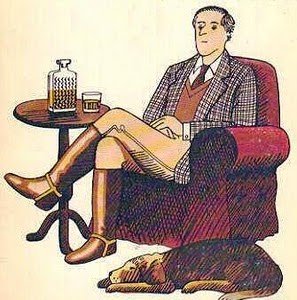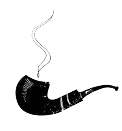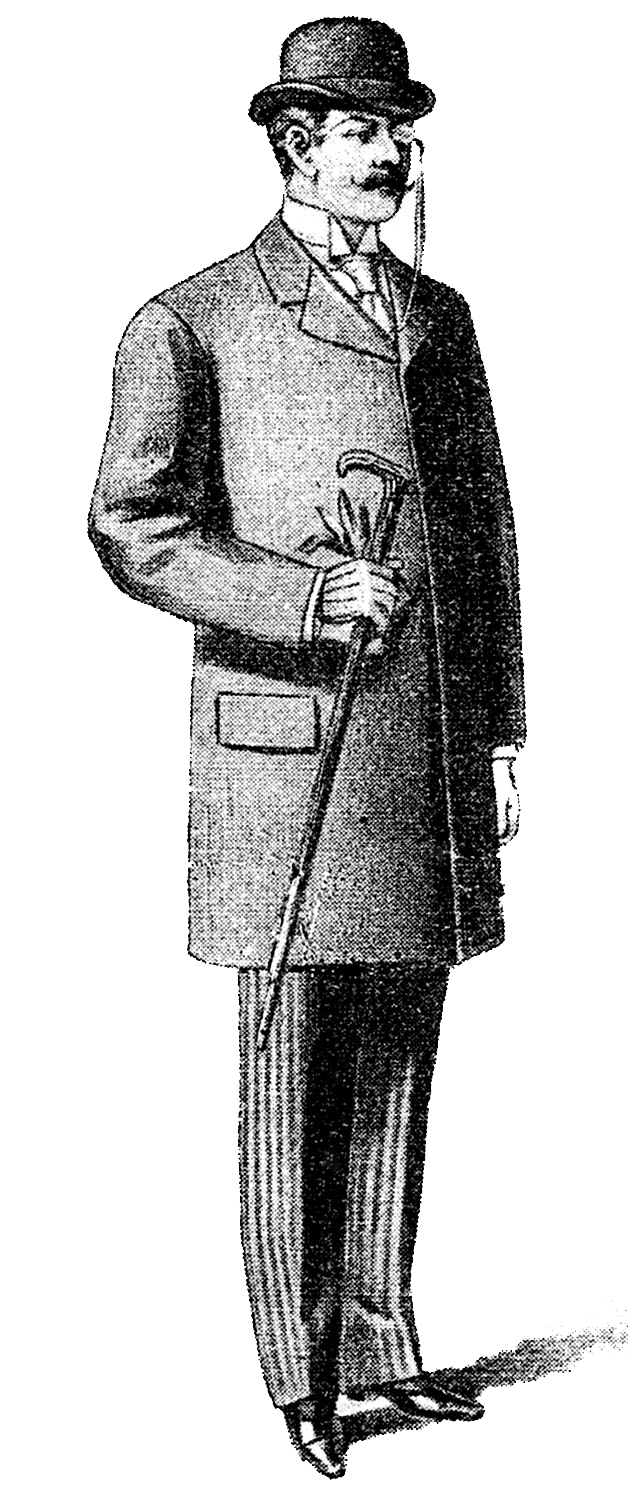Reading Club Pre-Intermediate: A Friend In Need by S. Maugham
 For thirty years now I have been studying my fellow-men. I do not know very much about them. I suppose it is on the face that for the most part we judge the persons we meet. We draw our conclusions from the shape of the jaw, the look in the eyes, the shape of the mouth. I shrug my shoulders when people tell me that their first impressions of a person are always right. For my own part I find that the longer I know people the more they puzzle me: my oldest friends are just those of whom I can say that I don't know anything about them.
For thirty years now I have been studying my fellow-men. I do not know very much about them. I suppose it is on the face that for the most part we judge the persons we meet. We draw our conclusions from the shape of the jaw, the look in the eyes, the shape of the mouth. I shrug my shoulders when people tell me that their first impressions of a person are always right. For my own part I find that the longer I know people the more they puzzle me: my oldest friends are just those of whom I can say that I don't know anything about them.
These thoughts have occurred to me because I read in this morning's paper that Edward Hyde Burton had died at Kobe. He was a merchant and he had been in Japan for many years. I knew him very little, but he interested me because once he gave me a great surprise. If I had not heard the story from his own lips I should never have believed that he was capable of such an action. It was the more startling because both his appearance and his manner gave the impression of a very different man. He was a tiny little fellow, very slender, with white hair, a red face much wrinkled, and blue eyes. I suppose he was about sixty when I knew him. He was always neatly and quietly dressed in accordance with his age and station.
Though his offices were in Kobe Burton often came down to Yokohama. I happened on one occasion to be spending a few days there, waiting for a ship, and I was introduced to him at the British Club. We played bridge together. He played a good game and a generous one. He did not talk very much, either then or later when we were having drinks, but what he said was sensible. He had a quiet, dry humour. He seemed to be popular at the club and afterwards, when he had gone, they described him as one of the best. It happened that we were both staying at the Grand Hotel and next day he asked me to dine with him. I met his wife, fat, elderly and smiling, and his two daughters. It was evidently a united and loving family. I think the chief thing that struck me about Burton was his kindliness. There was something very pleasing in his mild blue eyes. His voice was gentle; you could not imagine that he could raise it in anger; his smile was kind. Here was a man who attracted you because you felt in him a real love for his fellows. He had charm. But there was nothing sentimental about him: he liked his game of cards and his cocktail, he could tell a good and spicy story, and in his youth he had been something of an athlete. He was a rich man and he had made every penny himself. I suppose one thing that made you like him was that he was so small and frail; he aroused your instincts of protection. You felt that he would not hurt a fly.
One afternoon I was sitting in the lounge of the Grand Hotel. From the windows you had an excellent view of the harbour with its crowded traffic. There were great liners; merchant ships of all nations, junks and boats sailing in and out. It was a busy scene and yet, I do not know why, restful to the spirit.
Burton came into the lounge presently and caught sight of me. He seated himself in the chair next to mine.
"What do you say to a little drink?"
He clapped his hands for a boy and ordered two drinks. As the boy brought them a man passed along the street outside and seeing me waved his hand.
"Do you know Turner?" said Burton as I nodded a greeting.
"I've met him at the club. I'm told he's a remittance man."
"Yes, I believe he is. We have a good many here."
"He plays bridge well."
"They generally do. There was a fellow here last year, a namesake of mine, who was the best bridge player I ever met. I suppose you never came across him in London. Lenny Burton he called himself."
"No. I don't believe I remember the name."
"He was quite a remarkable player. He seemed to have an instinct about the cards. It was uncanny. I used to play with him a lot. He was in Kobe for some time."
Burton sipped his gin.
"It's rather a funny story,", he said. "He wasn't a bad chap. I liked him. He was always well-dressed and he was handsome in a way, with curly hair and pink-and-white cheeks. Women thought a lot of him. There was no harm in him, you know, he was only wild. Of course he drank too much. Fellows like him always do. A bit of money used to come in for him once a quarter and he made a bit more by card-playing. He won a good deal of mine, I know that."
Burton gave a kindly little chuckle.
"I suppose that is why he came to me when he went broke, that and the fact that he was a namesake of mine. He came to see me in my office one day and asked me for a job. I was rather surprised. He told me that there was no more money coming from home and he wanted to work. I asked him how old he was.
"Thirty five,' he said.
'"And what have you been doing before?' I asked him.
'"Well, nothing very much,' he said.
"I couldn't help laughing.
"'I'm afraid I can't do anything for you just now,' I said. 'Come back and see me in another thirty-five years, and I'll see what I can do.'
"He didn't move. He went rather pale. He hesitated for a moment and then he told me that he had had bad luck at cards for some time. He hadn't a penny. He'd pawned everything he had. He couldn't pay his hotel bill and they wouldn't give him any more credit. He was down and out. If he couldn't get a job he'd have to commit suicide.
"I looked at him for a bit. I could see now that he was all to pieces. He'd been drinking more than usual and he looked fifty.
'"Well, isn't there anything you can do except play cards?' I asked him.
"'I can swim,' he said.
"'Swim!'
"I could hardly believe my ears; it seemed such a silly answer.
"'I swam for my university.'
"'I was a pretty good swimmer myself when I was a young man,' I said.
"Suddenly I had an idea.
Pausing in his story, Burton turned to me.
"Do you know Kobe?" he asked.
"No," I said, "I passed through it once, but I only spent a night there."
"Then you don't know the Shioya Club. When I was a young man I swam from there round the beacon and landed at the creek of Tarumi. It's over three miles and it's rather difficult on account of the currents round the beacon. Well, I told my young namesake about it and I said to him that if he'd do it I'd give him a job.
"I could see he was rather taken aback.
"You say you're a swimmer,' I said.
'"I'm not in very good condition,' he answered.
"I didn't say anything. I shrugged my shoulders. He looked at me for a moment and then he nodded.
"All right,' he said. 'When do you want me to do it?'
"I looked at my watch. It was just after ten.
"The swim shouldn't take you much over an hour and a quarter. I'll drive round to the creek at half-past twelve and meet you. I'll take you back to the club to dress and then we'll have lunch together.'
"Done,' he said.
"We shook hands. I wished him good luck and he left me. I had a lot of work to do that morning and I only just managed to get to the creek at half past twelve. I waited for him there, but in vain."
"Did he get frightened at the last moment?" I asked.
"No, he didn't. He started swimming. But of course he'd ruined his health by drink. The currents round the beacon were more than he could manage.' We didn't get the body for about three days."
I didn't say anything for a moment or two. I was a little shocked. Then I asked Burton a question.
"When you offered him the job, did you know that he'd be drowned?"
He gave a little mild chuckle and he looked at me with those kind blue eyes of his. He rubbed his chin with his hand.
"Well, I hadn't got a vacancy in my office at the moment."

Exercises
1. The title of the story is the beginning of the proverb ‘A friend in need is a friend indeed’. Why do you think the author doesn`t give the ending of the proverb?
2. Find in the story the English for:
Судить о человеке, делать вывод, озадачивать (ставить в тупик), приходить на ум, быть способным на что-то, морщинистый, повышать голос, и мухи не обидеть, помахать рукой, тезка, потягивать джин, быть высокого мнения о ком-либо, посмеиваться, в состоянии отчаяния, совершить самоубийство, измученный, течение, ошеломленный, пожелать удачи, тщетно (зря), подорвать здоровье, утонуть.
 3. Fill the gaps with these words or word combinations in an appropriate form:
3. Fill the gaps with these words or word combinations in an appropriate form:
- To draw conclusions
- In vain
- To wave one`s hand
- To sip
- A current
- To shrug one`s shoulders
- To be capable of
- Wrinkled
- To commit suicide
- To be drowned
1. We _____________ from the shape of the jaw, the look in the eye, the shape of the mouth.
2. I should never have believed that he __________ such an action.
3. He was a tiny, little fellow, very slender, with white hair, a red face much ______________ and blue eyes.
4. A man passed along the street outside and seeing me _____________.
5. Burton _________ his gin.
6. If he couldn`t get a job he`d have to _____________.
7. The __________ round the beacon were more than he could manage.
8. I ____________ when people tell me that their impressions of a person are always right.
9. I waited for him there but _________.
10. When you offered him a job did you know that he __________?
4. Replace the italicized words/ word combinations with a synonym:
- To judge
- A namesake of
- To raise one`s voice
- Puzzled
- To think a lot of
- To ruin one`s health
- To occur
- Down and out
1. We often form an opinion about a person by his looks.
2. These thoughts came to my mind because I read in this morning`s newspaper about Edward Burton`s death.
3. You could not imagine that he could speak in a higher tone in anger.
4. There was a fellow there last year whose name was also Edward.
5. Women thought highly of him.
6. He was unemployed and without money.
7. I could see he was rather taken aback.
8. But of course he undermined his health by drink.
Discussion points
Answer the following questions:
1) What thoughts occurred to the author when he read in a newspaper about Mr. Burton`s death?
2) Why did Mr. Burton interest the author?
3) Where did the author make Mr. Burton`s acquaintance?
4) What did the author know about Mr. Burton?
5) What attracted the author in Mr. Burton?
6) When and where did he tell the author the story of his namesake?
7) What kind of man was young Burton?
8) Why did he once come to Mr. Burton?
9) What was the situation he found himself in?
10) What idea did suddenly Mr. Burton have when his namesake said he had swum for the university?
11) Why was young Burton taken back?
12) Why was young Burton drowned?
13) What was the author`s reaction to the story?
14) Why did Mr. Burton say he offered his namesake a job?
Discuss the following:
1. Why would the author never have believed that Mr. Burton was capable of such an actionif he had not heard the story from his own lips? Do you think that the first impressions of a person are always right?
Comment on the following proverb (with referrence to the story):
Appearences are deceitful.
2. Make guesses about young Burton`s 35 years of life. Why had he never done anything in his life?
3. Is there any evidence in the story that Mr.Burton was not that kind and gentle? Why did he promise his namesake a job if the latter swam round the beacon? Did he know he would be drowned? Why did he come to the creek?
4. Why did Mr.Burton tell the author the story? Why did he say it was rather a funny story? Why did he give a little mild chuckle when the author asked him if he had known that the guy would be drowned?
5.What is the story about beneath the surface of the narrative? Explain the title of the story. What could have naturally expected of ‘a friend in need’ in that situation? What would you have told Mr.Burton if you had been his listener?
6. What is you main impression of the story?